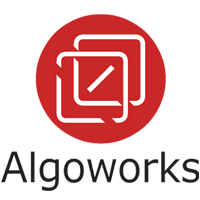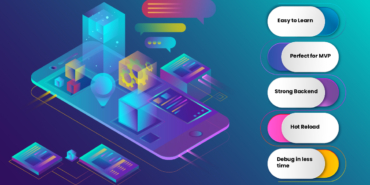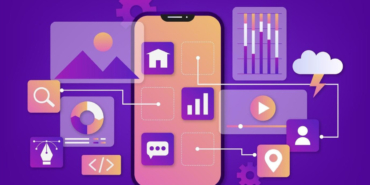As technology continues to evolve and become an integral part of our daily lives, ethical considerations in app development have become increasingly important.
Home » Mobile App Development Companies
Top Mobile App Development Companies
Discover our expertly curated list of top mobile app developers, where you can find the perfect match for your project. Compare profiles, portfolios, and client reviews to connect with the best app development companies. A well-crafted mobile app enhances visibility, strengthens brand recognition, boosts sales, and increases productivity. In today's fast-paced market, having both a website and a mobile app is crucial to staying competitive. Our team has thoroughly vetted thousands of app development companies, saving you time and effort. Quickly create a shortlist of standout developers by exploring their portfolios, industry reputation, and client reviews. Whether you're aiming to improve accessibility, convenience, or revenue, you can trust our verified reviews and the insights of our vast community of users. Explore popular mobile app services, including gaming development, healthcare apps, and financial services apps. You can also filter by operating systems like Android and iOS to find the right fit for your needs. Mobile app development encompasses more than just coding; it involves design, gamification, testing, and a successful launch. Partnering with a knowledgeable app development company skilled in these areas will help your app succeed in a competitive market.
List of the Best Mobile App Development Companies

Naked Development
Turning Ideas Into Exceptional Mobile Experiences
Naked. We don't just build apps, we turn ideas into viable app businesses. It takes a people-centric approach to building, branding & marketing your next big idea - and there's no cutting corners. That's why our team of creative problem-solving visionaires are in-house, and US-based. Whatever stage in your app journey, we come alongside you to become your strategic partner and acclerate your success. Building an app that people love can be a risky, creative endeavour. That’s why we don’t make assumptions, we remove them. We discover, strategize, design, develop, brand, market, and launch apps into the world. Yes, our services are very good, but more than that we offer decades of experience guiding Founders away from common pitfalls and flashy trends. We become your partner to overcome the tech obstacles, creative challenges and potential business blunders that stand between you and your dreams.
- Irvine, CA
- 10 - 49
- 2018
- $150 - $199 / hr
- $25,000+
Goji Labs is an award-winning digital product agency, headquartered in Los Angeles. For over 10 years, our team helped startups, Fortune 500's, and large non-profits launch hundreds of digital products in a variety of industries. Our services include product strategy, UX research, UX/UI design, web, mobile app, and IoT development. We believe no great venture should be held back by technical execution. Translating this core belief into action, we work closely with our partners to launch new initiatives and scale existing ones. We work to understand your vision, help define your product, then design, build, and launch. We've helped our partners raise over a Billion dollars in venture funding.
- Los Angeles, CA
- 10 - 49
- 2014
- $100 - $149 / hr
- $25,000+

The NineHertz
Awarded#1 - Mobile App, Web & Software Company
The NineHertz has been creating prodigious web, game and mobile app solutions for world's most inventive brands. We have delivered more than 1000 mobile apps, games and web apps worldwide within both native and cross platforms. Among few of them are award winning iPhone and Android apps and enlisted as top 10 downloaded apps on Google and Apple Store. The NineHertz is headquartered in Jaipur, India with the offices in USA, UK, Australia, and Dubai with 200+ team members including industry experts in mobile app, web development, Mobile Game Development, salesforce development, industry solutions, cloud computing, and marketing strategy.
- Jaipur, India
- 250 - 999
- 2008
- $50 - $99 / hr
- $25,000+

Mercury Development
Staff Augmentation for Fitness Technology Startup
Mercury Development has deployed more than 50 engineers to augment a fitness technology firm's team and help them with app development and QA. They develop codes and test stacks to support weekly releases. These values have guided Mercury Development over it's 23 years in business, developing best in class, cutting edge Mobile Apps, and Custom Software. From early-stage Startups, to Enterprise organizations, Mercury Development always delivers on time, and on budget.
- Jaipur, India
- 250 - 999
- 2008
- $50 - $99 / hr
- $25,000+
Algoworks is an awarded mobile app design and development company based out of Sunnyvale, USA & Noida, India. Since 2006 our team has won various awards and has developed 500+ apps for startups & Fortune 500 companies. We have a team of passionate techies, designers & Business Analyst who take pride in delivering quality products. We follow agile methodology with regular app demos, we can ship your product quickly taking care of everything - design, development, deployment and marketing. Feel free to have a quick discussion with our architects to find out best app development strategy and tools for your app development and marketing needs before you sign with us. Contact Us Now.
- Sunnyvale, CA
- 250 - 999
- 2006
- $25 - $49 / hr
- $10,000+

MentorMate
UX/UI Design & Web & Mobile App Dev for Wealth Mgmt Company
MentorMate developed an education management solution that facilitates mentorship. Using a provided prototype as a starting point, they went through an in-depth design phase before developing the initial MVP. Since 2001, we’ve blended strategic insights and thoughtful design with brilliant engineering to create durable technical solutions that deliver digital transformation at scale. With an unwavering commitment to open and transparent communication, we earned the trust of hundreds of companies worldwide to guide their vision, design innovative products, and deliver secure solutions. We’re invested in our clients’ business challenges and bring innovative ideas, approaching every project with a deep understanding of the specific nuances of their industry.
- Minneapolis, MN
- 1,000 - 9,999
- 2001
- $50 - $99 / hr
- $50,000+

Emizen Tech
Mobile App Dev for Emergency Notification App Provider
Emizen Tech has taken over the development of an emergency notification app provider's existing mobile app from the previous developer. They've also developed a new mobile app and created an admin panel. Emizentech is an acclaimed IT organization with its expertise lies in delivering top of the line e-commerce and mobile application solutions to various industry verticals. At Emizentech, we deliver the most efficient, scalable, and cost-effective e-commerce business websites and applications that propel massive traffic, sales, and conversions to your digital business and amplify overall business growth.
- New York, NY
- 50 - 249
- 2013
- < $25 / hr
- $5,000+

ChopDawg.com
Mobile App Development for Youth Development Organization
ChopDawg.com is building a mobile app for a youth development organization. They’ve done low-fidelity designs and swimlanes and are now doing high-fidelity designs. Next, their development team will take over. We are more than just an agency, we are your trusted technology partner ready to help make your dreams a reality and support you for years to come. Whether you have a new idea or an existing app that needs rejuvenation, we are by your side. If you are a new app creator or have previously had an unsatisfactory experience, rest assured—our approach is different, effective, and outcome-focused.
- Philadelphia, PA
- 10 - 49
- 2009
- $50 - $99 / hr
- $25,000+

Appinventiv
Mobile App Development for Professional Networking Startup
Appinventiv developed the MVP of an iOS and Android mobile app for a professional networking startup, using React Native, Firebase, and several integrations with providers like Stripe, Twilio, and Mixpanel. Global Custom Software & Mobile App Development Company Flourishing innovative ideas into disruptive products through digital-first solutions Appinventiv is an industry leader in building digital products ranging from mobile apps to AI-powered software that help businesses gain unmatched competitive advantage and scale ROIs.
- New York, NY
- 1,000 - 9,999
- 2014
- $25 - $49 / hr
- $50,000+

Zco Corporation
Custom Mobile App & Web Dev for Teaching Hospital
Zco has developed a custom mobile research app with various features for a teaching hospital. Their tasks also include building an administrative website and an Android and iOS version of the app. Zco Corporation is a trusted custom software development vendor whose reputation for excellence spans three decades. We've created robust software solutions for entrepreneurs, startups, and Fortune 500 companies alike. We offer our clients access to one of the largest teams of engineers, artists, designers, and project managers in the industry.
- Nashua, NH
- 250 -999
- 1989
- $25 - $49 / hr
- $10,000+
Latest Trends Related to Mobile App Development Companies
Cross-Platform Development Tools and Frameworks: A Comprehensive Guide
Cross-platform development has revolutionized the software industry by allowing developers to build applications that work seamlessly across multiple platforms
Integrating AI and Machine Learning in Mobile Apps: A Comprehensive Guide
In recent years, Artificial Intelligence (AI) and Machine Learning (ML) have revolutionized various industries, including mobile app development. By integratin
Enterprise Mobile App Development: Strategies, Tips & Examples
Table of Contents Introduction to Enterprise Mobile App Development Importance of Enterprise Mobile Apps Key Strategies for Enterprise Mobile App Dev
Web Design Companies Hiring Guide
What is mobile app development?
Mobile app development is the process of creating software applications that run on mobile devices, such as smartphones and tablets. These applications can be designed for various purposes, ranging from entertainment and social networking to productivity and enterprise solutions. The development process involves several stages, including planning, designing, building, testing, and deploying the app.
Key Aspects of Mobile App Development
Platform Selection:
- iOS: Apps developed for Apple's iOS platform are designed to run on iPhones and iPads. The development is typically done using languages like Swift or Objective-C in Xcode, Apple's integrated development environment (IDE).
- Android: Android apps are designed for devices running the Android operating system. Development is usually done using Java or Kotlin in Android Studio, the official IDE for Android development.
- Cross-Platform: Some apps are developed to run on multiple platforms using a single codebase. Frameworks like React Native, Flutter, and Xamarin enable developers to create cross-platform apps.
Types of Mobile Apps:
- Native Apps: These are built specifically for a single platform (iOS or Android) using platform-specific languages and tools. They offer the best performance and access to device features but require separate development efforts for each platform.
- Hybrid Apps: Hybrid apps are developed using web technologies like HTML, CSS, and JavaScript and are wrapped in a native container. They can run on multiple platforms with a single codebase, offering a balance between cost and performance.
- Web Apps: Web apps are mobile-optimized websites that behave like apps but run in a web browser. They are platform-independent but may have limited access to device features and a less native user experience.
Development Process:
- Planning: This phase involves defining the app's purpose, target audience, features, and goals. It includes market research, competitor analysis, and identifying the app's unique selling points (USPs).
- Design: In this stage, the app's user interface (UI) and user experience (UX) are crafted. Wireframes, mockups, and prototypes are created to visualize the app's layout, navigation, and interactions.
- Development: The actual coding and building of the app take place in this phase. Developers write the code, integrate APIs, and implement the app's features according to the design specifications.
- Testing: Before the app is released, it undergoes rigorous testing to identify and fix bugs, ensure functionality, and optimize performance. Testing includes unit testing, integration testing, and user acceptance testing (UAT).
- Deployment: Once the app passes testing, it is deployed to app stores (like Apple App Store or Google Play) or distributed through enterprise channels. The deployment phase also involves app store optimization (ASO) to improve visibility and downloads.
Post-Launch Activities:
- Maintenance: After launch, the app requires regular updates to fix bugs, add new features, and improve performance. Continuous monitoring and user feedback are essential to keep the app relevant and functioning well.
- Marketing: Promoting the app through various channels, such as social media, content marketing, and paid advertising, is crucial for attracting users and achieving success.
Importance of Mobile App Development
Mobile apps have become an integral part of our daily lives, providing convenience, entertainment, and utility. For businesses, mobile apps are powerful tools for engaging customers, enhancing brand loyalty, and driving revenue. In the enterprise context, mobile apps can streamline operations, boost employee productivity, and improve decision-making.
With the increasing use of mobile devices, the demand for innovative, user-friendly, and high-performing mobile apps continues to grow, making mobile app development a vital skill in the tech industry.
What Does mobile app development Companies Do?
Mobile app development companies specialize in creating, designing, and maintaining mobile applications for various platforms, such as iOS, Android, and cross-platform environments. These companies offer a wide range of services that cater to businesses, organizations, and individuals looking to develop mobile apps for different purposes, including entertainment, e-commerce, productivity, and enterprise solutions.
Core Services Provided by Mobile App Development Companies
Consultation and Strategy Development:
- Business Analysis: Companies start by understanding the client's business goals, target audience, and specific needs. They conduct market research, analyze competitors, and identify the best strategies to achieve the client's objectives.
- App Concept and Ideation: Based on the analysis, they help clients conceptualize the app's features, functionalities, and unique selling points (USPs). This phase often involves brainstorming sessions and workshops.
- Technical Feasibility Study: The company assesses the technical requirements, including platform selection, integration needs, and potential challenges, to ensure the app's feasibility.
UI/UX Design:
- User Experience (UX) Design: UX designers focus on creating an intuitive and user-friendly experience. They map out user journeys, design wireframes, and ensure that the app is easy to navigate.
- User Interface (UI) Design: UI designers work on the visual aspects of the app, including layout, color schemes, typography, and icons. They create prototypes and mockups to visualize the app's final look.
- Design Iteration: The design process often involves multiple iterations based on client feedback and user testing to ensure that the design aligns with user expectations and business goals.
Mobile App Development:
- Platform-Specific Development: Depending on the project requirements, companies develop native apps for iOS (using Swift or Objective-C) and Android (using Java or Kotlin). Native apps offer the best performance and access to platform-specific features.
- Cross-Platform Development: For clients looking to target multiple platforms with a single codebase, companies use cross-platform frameworks like React Native, Flutter, or Xamarin. This approach reduces development time and costs.
- Backend Development: The backend handles the app's data processing, storage, and server-side logic. Development companies build APIs, databases, and server infrastructure to support the app's functionality.
- Integration with Third-Party Services: Many apps require integration with external services, such as payment gateways, social media, analytics tools, and enterprise systems. Development companies handle these integrations to ensure seamless operation.
Testing and Quality Assurance:
- Functional Testing: Developers test the app's features and functionalities to ensure they work as intended. This includes testing different user scenarios, interactions, and data inputs.
- Performance Testing: The app is tested for speed, responsiveness, and stability across various devices and network conditions. This ensures that the app performs well under different circumstances.
- Security Testing: Security is a critical aspect of mobile apps. Companies perform security assessments to identify vulnerabilities and ensure that the app complies with industry standards and regulations.
- Usability Testing: User feedback is gathered through usability testing to identify any issues related to user experience. This helps refine the app before launch.
App Deployment and Launch:
- App Store Submission: The development company handles the submission process to app stores like the Apple App Store and Google Play. This includes meeting the platform's guidelines, creating app listings, and optimizing for app store visibility.
- App Store Optimization (ASO): Companies optimize the app's metadata, keywords, and visuals to improve its ranking and discoverability in app stores.
- Beta Testing and Soft Launch: Before a full-scale launch, companies often conduct beta testing or a soft launch to gather real-world feedback and make final adjustments.
Post-Launch Support and Maintenance:
- Bug Fixes and Updates: After the app is launched, development companies provide ongoing support to fix any bugs or issues that arise. They also release updates to add new features or improve performance.
- Performance Monitoring: Companies use analytics and monitoring tools to track the app's performance, user engagement, and other key metrics. This data helps in making informed decisions for future updates.
- Scalability and Upgrades: As the app's user base grows, companies may need to scale the app's infrastructure or upgrade its features to meet new demands.
Marketing and User Acquisition Support:
- Digital Marketing: Some mobile app development companies offer marketing services to promote the app. This may include social media marketing, content marketing, influencer partnerships, and paid advertising.
- User Engagement and Retention: Companies help clients develop strategies to keep users engaged with the app, such as push notifications, in-app messaging, and loyalty programs.
Custom Solutions for Specific Industries:
- Enterprise Solutions: Companies develop custom apps for businesses, focusing on improving internal processes, communication, and productivity.
- E-commerce Apps: Development companies create apps for online stores, integrating features like product catalogs, payment processing, and order tracking.
- Healthcare Apps: These apps require compliance with regulations like HIPAA. Development companies build secure and reliable apps for patient management, telemedicine, and health tracking.
Additional Services
Prototyping and MVP Development: For startups or clients with limited budgets, companies offer prototyping and Minimum Viable Product (MVP) development services. This approach allows clients to launch a basic version of the app and gather user feedback before investing in full development.
Custom Software Development: Some companies extend their services beyond mobile apps to include web development, desktop applications, and custom software solutions that complement the mobile experience.
What's the difference between a mobile app design and mobile app development?
Mobile app design and mobile app development are two distinct but closely related aspects of the mobile app creation process. They involve different skill sets, tools, and objectives, but they work together to produce a successful mobile application.
Mobile App Design
Mobile app design focuses on the visual and interactive aspects of an app. It is primarily concerned with how the app looks and feels to the user, ensuring that the app is not only aesthetically pleasing but also intuitive and easy to use. Design is typically divided into two key areas: User Interface (UI) design and User Experience (UX) design.
User Interface (UI) Design:
- Visual Design: UI designers are responsible for the app's visual elements, such as color schemes, typography, icons, buttons, and layout. They create the look and feel of the app, ensuring it aligns with the brand's identity and appeals to the target audience.
- Interactive Elements: UI design also involves the placement and behavior of interactive elements, such as buttons, sliders, and navigation bars. The goal is to make these elements easy to use and understand.
User Experience (UX) Design:
- User Flow: UX designers focus on the overall experience of the user, mapping out how they will navigate through the app and interact with its features. They create user flows, wireframes, and prototypes to plan the app's structure and functionality.
- Usability: UX design emphasizes ease of use, accessibility, and satisfaction. Designers conduct user research, create personas, and perform usability testing to ensure the app meets users' needs and provides a seamless experience.
- Information Architecture: UX designers organize the content and features within the app in a logical and intuitive way, ensuring users can easily find what they need.
Tools Used in Mobile App Design:
- UI Design Tools: Sketch, Adobe XD, Figma
- Prototyping Tools: InVision, Marvel, Proto.io
- Wireframing Tools: Balsamiq, Axure, Moqups
Mobile App Development
Mobile app development is the process of actually building the app. It involves writing the code that makes the app function according to the design specifications. Development encompasses both the frontend (what users interact with) and the backend (server-side logic, databases, and integrations).
Frontend Development:
- App Interface: Frontend developers take the designs created by UI/UX designers and turn them into functional, interactive components that users can interact with. This includes coding the app’s visual elements, animations, and user interactions.
- Platform-Specific Development: Developers write platform-specific code using languages and tools suited for the target operating system (iOS, Android, or cross-platform). For example, Swift or Objective-C for iOS, and Java or Kotlin for Android.
- Cross-Platform Development: Developers might use frameworks like React Native, Flutter, or Xamarin to create apps that work across multiple platforms using a single codebase.
Backend Development:
- Server-Side Logic: Backend developers handle the app’s server-side operations, including data storage, authentication, and API integrations. They ensure that the app can communicate with databases, third-party services, and other external systems.
- Database Management: Developers set up and manage the databases where the app's data is stored, ensuring data is securely stored and efficiently retrieved.
- API Development: Backend development often involves creating APIs that allow the frontend to interact with the backend systems. These APIs handle requests like fetching data, processing transactions, or sending notifications.
Quality Assurance and Testing:
- Testing: Development includes testing the app to ensure it works correctly across different devices and scenarios. This includes functional testing, performance testing, security testing, and usability testing.
- Bug Fixing: Developers identify and fix bugs that could affect the app’s performance or user experience.
Tools Used in Mobile App Development:
- iOS Development: Xcode, Swift, Objective-C
- Android Development: Android Studio, Java, Kotlin
- Cross-Platform Development: React Native, Flutter, Xamarin
- Backend Development: Node.js, Django, Ruby on Rails, Firebase, AWS, SQL/NoSQL databases
Key Differences
Focus and Objectives:
- Design: Focuses on the app's visual appeal and usability, ensuring that users have a positive experience when interacting with the app.
- Development: Focuses on building the functional aspects of the app, ensuring that it operates correctly and efficiently.
Skill Sets:
- Design: Requires skills in graphic design, user research, UX principles, and tools for prototyping and wireframing.
- Development: Requires programming skills, knowledge of development frameworks and languages, and an understanding of server-side technologies and databases.
Outcome:
- Design: Produces wireframes, prototypes, and design specifications that guide the development process.
- Development: Produces the working app that users can download and use on their mobile devices.
Workflow:
- Design: Usually occurs in the early stages of the app creation process, laying the groundwork for development.
- Development: Follows the design phase, turning the design concepts into a functional application.
In summary, while mobile app design and development are interdependent, they serve different purposes within the app creation process. Design focuses on creating an attractive, user-friendly interface and experience, while development is about bringing that design to life through coding and technical implementation.
How much does it cost for app development?
1. Complexity of the App
Simple Apps:
- Description: Apps with basic functionality, such as a simple user interface, a few screens, basic user interactions, and minimal backend requirements.
- Examples: Basic calculators, to-do lists, or simple informational apps.
- Estimated Cost: $5,000 - $50,000
- Development Time: 2-4 months
Moderately Complex Apps:
- Description: Apps with more features, including user authentication, API integration, in-app purchases, basic database management, and a more polished UI/UX design.
- Examples: E-commerce apps, social networking apps, or fitness trackers with basic features.
- Estimated Cost: $50,000 - $150,000
- Development Time: 4-9 months
Complex Apps:
- Description: Apps with advanced features like real-time communication, custom animations, complex backend infrastructure, integration with third-party services, and support for multiple platforms.
- Examples: On-demand service apps (e.g., Uber), comprehensive e-commerce platforms, large-scale social media apps, or enterprise-level applications.
- Estimated Cost: $150,000 - $500,000+
- Development Time: 9+ months
2. Platforms
Single Platform (iOS or Android):
- Developing for a single platform (either iOS or Android) is generally less expensive than developing for both.
- Cost Impact: Developing for one platform can reduce costs by 20-40%.
Cross-Platform Development:
- Using cross-platform development frameworks like React Native or Flutter allows you to build apps for both iOS and Android from a single codebase, potentially lowering costs.
- Cost Impact: Cross-platform development can be 10-30% more cost-effective than building two separate native apps.
3. Features and Functionality
Basic Features: Simple features like static content, push notifications, basic forms, and minimal data processing.
- Cost Impact: Lower cost, as these features are relatively straightforward to implement.
Advanced Features:
- Examples: Real-time chat, video streaming, geolocation, offline mode, complex animations, integration with wearables, and AI-driven features.
- Cost Impact: Significantly increases the cost, especially if custom development or extensive third-party integrations are required.
Backend Infrastructure:
- A robust backend is necessary for apps that require user authentication, data storage, content management, and real-time data processing.
- Cost Impact: A complex backend with database management, APIs, and server-side logic can add $10,000 to $100,000+ to the total cost.
4. Development Team Location
North America (USA, Canada):
- Hourly Rate: $100 - $200+
- Impact on Cost: Higher overall development costs, but with the potential for high-quality, experienced developers.
Western Europe (UK, Germany, France):
- Hourly Rate: $70 - $150
- Impact on Cost: Relatively high costs, similar to North America, with experienced developers.
Eastern Europe (Poland, Ukraine, Romania):
- Hourly Rate: $40 - $80
- Impact on Cost: More affordable without significant compromises in quality, popular for outsourcing.
Asia (India, China, Vietnam):
- Hourly Rate: $20 - $50
- Impact on Cost: Lower costs, though quality can vary widely depending on the team and specific region.
Latin America (Brazil, Argentina, Mexico):
- Hourly Rate: $30 - $70
- Impact on Cost: Competitive pricing with increasing popularity as an outsourcing destination.
5. Design Complexity
Basic Design:
- Simple UI, minimal screens, and basic user interactions.
- Cost Impact: Lower design costs, often included in the lower range of total development costs.
Custom Design:
- Custom animations, complex user flows, and highly polished interfaces.
- Cost Impact: Can add $5,000 - $50,000+ depending on the level of customization and detail required.
6. Post-Launch Costs
Maintenance and Updates:
- Regular updates, bug fixes, and new features are essential for keeping the app functional and relevant.
- Cost Impact: Annual maintenance can range from 15-25% of the initial development cost.
Marketing and Promotion:
- Launch campaigns, app store optimization (ASO), and ongoing marketing efforts are necessary for user acquisition and retention.
- Cost Impact: Marketing budgets can range from $10,000 to $100,000+ depending on the app's goals and audience.
Total Cost Estimate
Given the variables mentioned above, the total cost of developing a mobile app can range from:
- Simple App: $5,000 - $50,000
- Moderately Complex App: $50,000 - $150,000
- Complex App: $150,000 - $500,000+
Why should I see app development?
1. Aligning Expectations and Goals
Understanding Scope: Knowing the development process helps you set realistic expectations about what can be achieved and how long it will take. This alignment is crucial for both clients and users to avoid misunderstandings and ensure the final product meets your needs.
Defining Features: By understanding the development process, you can better define your app's features and functionalities, ensuring that your requirements are clearly communicated to the development team.
2. Making Informed Decisions
Choosing the Right Development Approach: Whether to opt for native, cross-platform, or hybrid development depends on your app’s needs and budget. Understanding these options helps you make informed decisions that best align with your goals.
Budget Planning: Knowledge of the app development process allows you to estimate costs more accurately and plan your budget accordingly. It also helps in prioritizing features based on your budget constraints.
3. Effective Collaboration
Communication with Developers: Understanding the basics of app development enables you to communicate more effectively with your development team. You can ask informed questions, provide better feedback, and collaborate more efficiently.
Project Management: If you’re managing the development project, knowing the process helps you oversee timelines, milestones, and deliverables. It also aids in identifying potential issues early on and addressing them promptly.
4. Quality Assurance
Testing and Feedback: Knowing how development works helps you understand the importance of testing and user feedback in refining the app. You can participate in beta testing and provide valuable input to improve the app’s functionality and user experience.
Ensuring Standards: Understanding the development process helps you ensure that the app adheres to industry standards and best practices, including security, performance, and usability.
5. Career Opportunities
Learning and Growth: If you're interested in a career in app development, knowing the process is essential for building your skills and expertise. It helps you understand various roles within the development lifecycle and the skills required for each.
Specialization: Knowledge of app development can lead to specialization in areas like UI/UX design, backend development, or mobile app marketing, allowing you to focus on specific aspects of the development process.
6. Strategic Advantage
Competitive Edge: For businesses, understanding app development helps in creating unique and innovative solutions that offer a competitive advantage. It enables you to identify market gaps and develop apps that cater to specific needs.
User Engagement: Knowing how apps are developed can help you design features that enhance user engagement and satisfaction, ultimately leading to better app performance and success.
7. Post-Launch Considerations
Maintenance and Updates: Understanding the ongoing nature of app development, including updates and maintenance, helps you plan for the long-term success of the app. It also ensures that you allocate resources for future improvements and support.
Marketing and Promotion: Awareness of the development process helps in planning effective marketing strategies, as you can align your promotional efforts with the app’s launch and feature updates.
Why should I see app development companies?
1. Expertise and Experience
Technical Proficiency: App development companies bring specialized skills and knowledge in various technologies, programming languages, and development frameworks. Their expertise ensures that your app is built using the best practices and latest technologies.
Previous Projects: Evaluating a company’s portfolio and case studies helps you understand their experience with similar projects. It gives you insight into their capabilities and the quality of their work.
2. Quality of Work
Design and User Experience: A reputable app development company will focus on creating a user-friendly and visually appealing app. Their design skills and understanding of UX principles are crucial for developing an app that meets user expectations.
Code Quality: Professional companies adhere to coding standards and best practices, ensuring that the app is robust, scalable, and maintainable.
3. Reliability and Trustworthiness
Track Record: Assessing the company’s reputation and client reviews helps you gauge their reliability and trustworthiness. Positive feedback from past clients indicates that the company delivers on its promises.
Transparency: A good development company will be transparent about their processes, timelines, and costs. They will communicate openly and keep you informed throughout the development process.
4. Project Management
Efficient Process: Established companies have well-defined development processes and project management practices. This ensures that the project stays on track, within budget, and meets deadlines.
Support and Maintenance: Post-launch support is crucial for addressing bugs, updates, and improvements. Evaluating a company’s support offerings ensures that you have access to ongoing assistance after the app is launched.
5. Cost and Budgeting
Cost Estimates: Different companies offer various pricing models. By evaluating multiple companies, you can compare quotes and understand what is included in the cost, helping you make an informed decision within your budget.
Value for Money: Assessing the scope of services, expertise, and quality of work helps ensure that you get good value for the investment you make in app development.
6. Customization and Flexibility
Tailored Solutions: A reputable company will offer customized solutions that align with your specific needs and goals. They should be able to adapt to changes in requirements and provide solutions that fit your vision.
Innovative Ideas: Experienced companies can offer valuable insights and innovative ideas that enhance your app’s functionality and user experience.
7. Technical and Industry Knowledge
Technology Stack: Companies with a strong understanding of the latest technologies and trends can help you choose the right tech stack for your app, ensuring it’s built with future scalability and performance in mind.
Industry Expertise: Companies with experience in your industry can bring valuable insights and understand the specific challenges and opportunities related to your business.
8. Risk Mitigation
Avoiding Pitfalls: Experienced app development companies are adept at identifying potential issues and risks early in the project. This helps in mitigating risks and avoiding costly mistakes.
Legal and Compliance: Professional companies are knowledgeable about industry standards and legal requirements, ensuring that your app complies with regulations and data protection laws.
9. Enhanced User Experience
User-Centric Design: Companies with a strong focus on UX design will create an app that is intuitive and engaging for users, leading to better retention and satisfaction.
Performance Optimization: A skilled development team ensures that the app performs well, loads quickly, and provides a smooth user experience across various devices and platforms.
10. Strategic Partnership
Long-Term Relationship: Choosing the right app development company can lead to a long-term partnership, where the company supports you through future updates, enhancements, and new projects.
Business Growth: A well-developed app can significantly contribute to your business growth. Partnering with a capable company ensures that your app effectively supports your business objectives and adds value.






